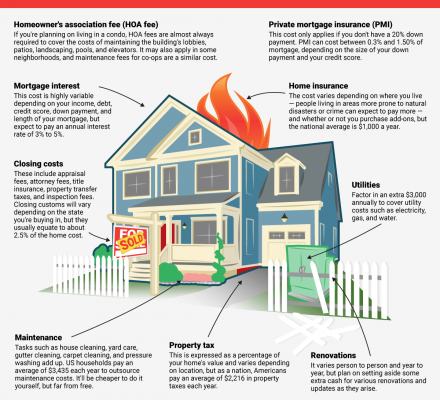When it comes to investing in real estate, the range of opportunities is vast. It could be opening an Airbnb, investing in REITs, or simply purchasing multifamily properties. Whatever your preference, experts agree that starting real estate investing early can pay off substantially.
Unfortunately, investing in real estate can be confusing, particularly if you don’t know how to begin. Thankfully, this article will streamline all the information you need to start your real estate investing journey.
Before we get into the crucial things to know when getting started, let’s answer the question, what is real estate investing?
What is Real Estate Investing?
To put it very simply, real estate investing refers to buying, managing, selling, or renting buildings and land to generate revenue.
There are a few different categories of real estate investing. These include:
Residential Real Estate
Residential real estate focuses on vacation properties, apartment buildings, and multifamily complexes. It is generally the easiest real estate investment opportunity for beginners.
Commercial Real Estate
Commercial real estate or CRE covers investments in retail storefronts, office spaces, or any building used for business purposes.
Getting into the CRE category is a lot more expensive than the residential category because it involves managing more property. The most effective way for an individual investor to enter the CRE industry is to buy shares in a real estate investment trust (REIT).
Industrial Real Estate
This category includes storage units, warehouses, and other large purpose-built structures that generate sales.
Why You Should Invest in Real Estate
Leverage
Real estate investing provides more leverage than many other traditional investment opportunities. For example, stocks do not allow you to get returns through borrowed funds, something that’s possible with real estate. You can borrow money to finance your properties and, if done correctly, you can maximize your returns.
Here’s a scenario to give you a better picture. You purchased a property for $400,000 with a 30% down payment ($120,000). After a few years, you can sell the property for $500,000, which is a massive return on your investment.
Of course, this is a simplistic example. Many factors come into play, including maintenance or repairs over the number of years you own the property. You also have to consider external factors, such as the performance of the real estate market within the given period and the economy as a whole.
Portfolio Diversification
Equity, bond, and stock investments can be volatile, meaning their value can rise or fall based on factors out of your control.
However, the real estate industry is not as volatile as other traditional investments. For example, real estate industry performance diverges from patterns in the stock market.
So, if the value of your other investments drops, your real estate investment portfolio could still generate steady returns. This is why the diversification of an investment portfolio is very crucial.
Better Returns in the Long Run
A residential real estate investor has plenty of time to buy a property and become a landlord. Owning a rental property means a monthly income so long as a tenant occupies it, which is one of the most common ways to generate a consistent income in real estate.
That said, it is usually a good idea to start small when investing in either multifamily properties or apartments in the residential real estate category.
This is especially the case if you are a beginner since mistakes are inevitable. Starting small means your mistakes are on smaller deals, and your risk is lower.
What to Know Before Getting into Real Estate Investing
The appropriate real estate investment opportunity depends on your experience level, risk tolerance, and budget.
If you are looking to invest in commercial real estate, for example, you should have between $50,000 and $100,000 on hand before venturing into the investment. You also want to consider how much you plan to put as a down payment. Typically, the standard is around 20 to 25%.
You must get a hold of your emotions to succeed in real estate investing, especially when considering residential real estate.
For most people, purchasing a private home is an emotional decision. As an investor, you must base this decision on logic. Just because you love a particular city or part of the city doesn’t mean it will be a smart decision to invest there. Ensure that your biases and feelings do not get in the way when it is time to invest.
It is also important to not make the mistake of believing that the numbers you put down, in theory, are bound to reflect reality. Never underestimate your expenses. Take precautions, even if you have the cash for higher risk exposure. Do not be conservative when it comes to repair estimates. Instead, always have an emergency repair fund.
Lastly, you must have an exit strategy in case the deal doesn’t turn out as you expected.
What are REITs?
Real estate investment trusts or REITs aren’t very different from investing in stocks. As an investor, you can choose to give your money to a corporation or trust that buys a property, allowing you to get a portion of the dividends once the property appreciates.
This is the most effective way for beginners to get into commercial real estate investment. Additionally, it has a potentially high yield. For the most part, corporations pay about 90% of their income from property investments to investors. In addition, your investment is liquid, meaning you can choose to sell your shares without having to sell a building. And to make things even easier, the corporation handles all the management work for you.
As an investor, you will most likely be dealing with publicly-traded REITs. To gain access to private REITs, you need to be an accredited investor with a high net worth. Typically, these trusts aren’t SEC-registered and require a higher upfront investment.
Advantages of REITs
- You can earn revenue from the dividends
- They can be fairly affordable and easy for newbie real estate investors
- It enables you to own real estate without having to purchase an actual property
Disadvantages of REITs
- REITs are long-term investments, meaning you will need to hold on to them for a couple of years to get the maximum profits
- Your dividend earnings are taxed
Residential Properties
Residential properties are technically passive investments but require active involvement. In addition to having the capital, you need time as well.
Most landlords outsource the management of their buildings to management companies, while some handle the repairs themselves. The great thing is that if you keep abreast of building maintenance, you indirectly raise the value of the building over time.
Advantages of rental properties
- You can get monthly income from tenants.
- The rent from your tenants essentially pays down your mortgage.
- You can live on one unit of the property while renting out the rest.
Disadvantages of rental properties
- Building maintenance is required, and that takes money and time.
- The rental property is another mortgage to consider apart from your principal property.
- Your rental properties might not have the best tenants, which could result in lawsuits.
- Rental property isn’t a liquid investment.
New Opportunities for Real Estate Investors
Another increasingly popular investment opportunity for real estate investors is crowdfunding. To bring this article on “what is real estate investing?” to a close, here’s what you should know about this opportunity.
Crowdfunding platforms are passive real estate investments closely related to REITs. Instead of going through a corporation or trust, investors can combine their assets to match interested real estate sponsors and developers.
There are plenty of crowdfunding platforms to choose from for residential and real estate investment. Generally, this opportunity gives you access to properties that you might not be able to invest in as an individual.
There are a few downsides, though. First, you have to wait a little longer for potential returns since most real estate crowdfunding deals only mature after several years. Thankfully, this wait time is balanced by comparatively higher returns.
It is important to understand that crowdfunding investments are illiquid, meaning you can’t sell them easily. You are at the mercy of the real estate market and the variables that influence it.
In general, crowdfunding has higher returns but can be a lot riskier compared to REITs.
Advantages of real estate crowdfunding platforms
- Returns are a lot higher than other real estate investment opportunities.
- You can own real estate without buying a property.
- You can invest in residential and commercial real estate.
- They have a lower entry barrier.
Disadvantages of real estate crowdfunding platforms
- They are significant long-term investments.
- Crowdfunded real estate platforms are at higher risk, and you can lose all your investment if the deal goes under.
- Investments are not liquid.




